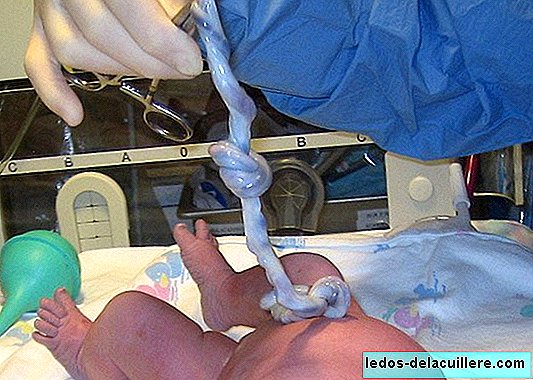
One of the risks that may arise regarding sleep during pregnancy is suffer from sleep apnea, a respiratory disorder consisting of a pause of at least 10 seconds while sleeping. During this time, the brain stops receiving oxygen.
In the most severe cases, the person can remain up to 40 seconds without breathing involuntarily, which results in arrhythmia, choking, restlessness and sleep interruptions (the brain is "activated" to breathe again, waking the person. These episodes can occur isolated or even hundreds in one night, and cause the person rest badly by not having a deep sleep.
The appearance of apnea is favored by hormonal changes in pregnancy, progesterone increases throat inflammation and estrogens contribute to inflammation by relaxing the circulatory pathways. Due to the narrowing of an area in the throat and with the muscles in the upper part of the throat relaxed during sleep, breathing may stop for a while.
A frequent sign of sleep apnea are loud snoring accompanied by gasping or choking during sleep. Snoring in people with sleep apnea is caused by the air that tries to escape through the narrow or blocked airway. However, every person who snores does not suffer from sleep apnea. Let's see what other symptoms are.
Another sign is feeling very sleepy during the day, falling asleep quickly during the quiet moments of the day, when resting ...
Headaches in the morning.
Memory problems and difficulty concentrating.
Sensation of irritability or depression, or alterations in mood or personality.
Waking up frequently to urinate.
Dry mouth or throat upon waking.

Consequences of sleep apnea in the mother and fetus
According to some research, this untreated disorder poses a cardiovascular and metabolic risk to the fetus. Babies born to mothers with apnea have a higher risk of low birth weight.
It has been proven that in women suffering from apnea, fetus movements were reduced by 50% during non-REM sleep and 65% during the REM stage, where the muscles relax almost completely. Research continues on the subject, for example on the consequences of this long-term condition in the child.
In future moms, these continuous shocks of breathing have an increase in tension in the body, a hypertension that in turn can lead to preeclampsia.
There are also studies that suggest that women who sleep less than six hours a night have longer labor and are more likely to have caesarean births.
Risk factors for sleep apnea during pregnancy
It is common for pregnant women to experience sleep disorders, and by increasing abdominal volume, pregnancy decreases the pumping capacity of the diaphragm, and this is a risk factor for the development of apnea.
But the risk of suffering obstructive sleep apnea increases significantly in women who have gestational diabetes.
Obesity in itself causes problems to breathe normally, so that extra volume of overweight mothers can accuse this complication during sleep.
An investigation conducted at the Rush Medical Center at the University of Chicago determined that seven out of ten pregnant women with gestational diabetes could suffer from sleep apnea, especially if there are other risk factors such as hypertension or obesity.
Finally, we will point out that sleep apnea during pregnancy It is a respiratory disorder that has to be detected in time and take a medical check to avoid risks in both the mother and the fetus, with a safe treatment if necessary.
Photos | johnath and cscott2006 on Flickr-CC In Babies and more | Sleep apnea during pregnancy is related to diabetes and hypertension, snoring during pregnancy












